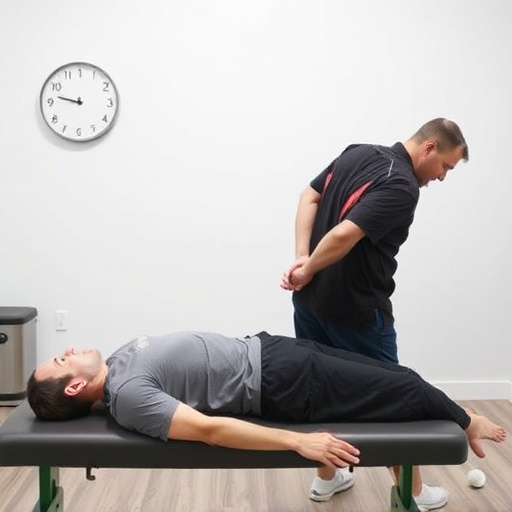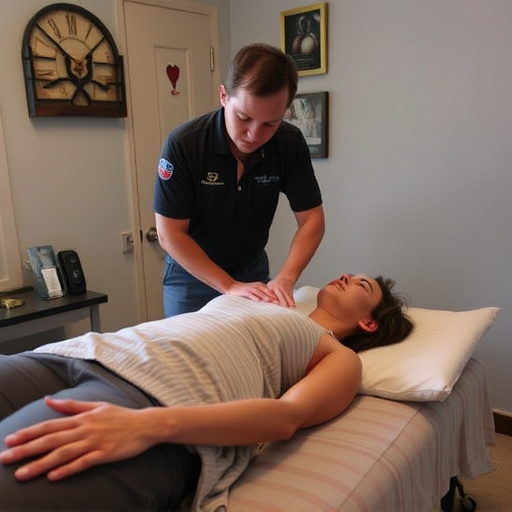Understanding and addressing delays in OWCP (Occupational Safety and Health Administration) claim assistance is vital for efficient processing, especially regarding neck pain relief. High claim volumes, complex medical documentation, communication breakdowns, and inadequate post-injury care plans contribute to backlogs. Streamlining document submission, clear guidelines, and improved stakeholder collaboration can mitigate these delays. Proactive measures by healthcare providers and legal professionals specializing in workers' compensation claims offer crucial support, ensuring claimants receive appropriate relief faster.
In navigating the complex landscape of OWCP (Office of Workers’ Compensation Programs) claim assistance, understanding common delays is paramount for a smoother process. This article delves into the root causes behind these delays and offers practical solutions to streamline the OWCP claim journey. From identifying administrative hurdles to implementing efficient practices, these strategies aim to expedite resolutions, ensuring claimants receive timely support and benefits they deserve.
- Understanding Common Delays in OWCP Claim Assistance
- Identifying and Addressing Root Causes of Delay
- Practical Solutions to Streamline OWCP Claim Process
Understanding Common Delays in OWCP Claim Assistance

Understanding Common Delays in OWCP Claim Assistance
Many individuals filing for OWCP (Occupational Safety and Health Administration) claim assistance often face delays, which can be frustrating and hinder their auto accident recovery process. These delays are frequently attributable to a variety of factors within the complex administrative system designed to manage benefits for work-related injuries or illnesses, including soft tissue injuries. One of the primary causes is the sheer volume of claims received by OWCP, leading to backlogs that delay processing time. Additionally, obtaining medical records and verifying the nature and extent of injuries can be time-consuming, especially when dealing with specialized treatments or complex cases.
Another common delay arises from the need for clarifications and additional information. Claimants must provide detailed documentation, and any missing or unclear details can cause delays as OWCP staff works to gather the necessary evidence. Furthermore, appeals processes further complicate matters, as they require thorough review and consideration of new evidence, leading to extended timelines. Understanding these potential roadblocks is crucial in navigating the system effectively and ensuring a smoother auto accident recovery process.
Identifying and Addressing Root Causes of Delay

Identifying and addressing the root causes of delays in OWCP claim assistance is a critical step to ensure efficient processing and resolution. Delays often stem from various factors, such as complex medical documentation, communication breakdowns between healthcare providers and insurance entities, or inadequate post-injury care plans. For instance, soft tissue injuries frequently require extensive evidence gathering and evaluation, leading to potential bottlenecks. Effective strategies involve streamlining document submission processes, implementing clear guidelines for submitting medical records, and fostering better collaboration among all stakeholders involved in the OWCP claim assistance process.
Quick neck pain relief is a priority for many claimants, but delays can be mitigated by proactive measures. Healthcare providers play a pivotal role in ensuring timely care by offering comprehensive assessments and developing structured post-injury care plans. These plans should include clear milestones and criteria for progressing from acute to rehabilitation stages. By addressing these root causes, the OWCP claim assistance process becomes more responsive, enabling quicker decisions and ultimately better outcomes for those seeking compensation and support for their work-related injuries, including neck pain relief.
Practical Solutions to Streamline OWCP Claim Process

The OWCP (Office of Workers’ Compensation Programs) claim assistance process can often be daunting and time-consuming for applicants. However, there are practical solutions to streamline this journey. One effective approach is to prioritize communication and documentation. Applicants should maintain clear and detailed records of their medical treatments, including visits to healthcare providers, hospital stays, and prescribed rehab services. This systematic approach ensures that all relevant information is readily available, reducing delays caused by missing documents.
Additionally, seeking guidance from experienced professionals can significantly enhance the process. Navigating the OWCP claim assistance process requires specialized knowledge. Legal representatives or advocates who specialize in workers’ compensation claims can provide invaluable support, ensuring applicants receive the necessary neck pain relief and headache relief they deserve. They can assist with preparing documentation, explaining rights and benefits, and even negotiating with insurance companies on behalf of the claimant.
Delays in OWCP claim assistance can significantly impact the experience of those seeking benefits. By understanding the common causes, such as complex claims, communication gaps, and resource constraints, we can identify root issues more effectively. Implementing practical solutions, including improved internal communication, streamlined processes, and technology integration, can help enhance the overall efficiency of the OWCP claim process, ensuring a smoother journey for all claimants.














